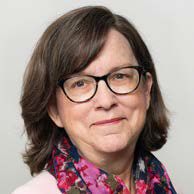THE RESILIENCE OF RELIGION AND THE ROLE OF VOCATION
Higher education has long been considered a bellwether of secularization. Commentators have largely accepted the prognosis that the once vibrant ties between the church and the academy, and more broadly between religion and higher learning, have frayed—propelling the American campus toward a wholly secular future. Such a shift would seem to have significant implications for issues surrounding vocation and calling, since these issues are often (even if not always or necessarily) intertwined with questions of religious faith. But the prevailing view of higher education’s secular shift has been upended with new research documenting the vitality of religion on many American campuses. Religion has staged a comeback at colleges and universities—even if this change has been uneven and complex, with growing attention to the sacred and to spirituality (and a much broader awareness of religious pluralism). How will vocation-related programs address these changes, in light of their own secular and religious commitments? How will the differing assumptions of faculty members, staff, and students affect this work? The resilience of religion in higher education has significant implications for those who are charged with guiding students as they explore their many callings in life.
Chair: Mary Dana Hinton, President, Hollins University



